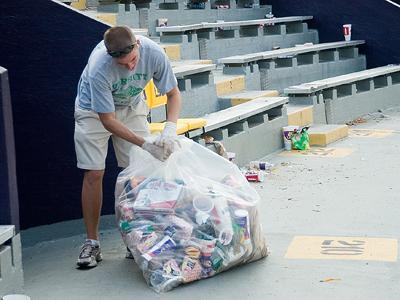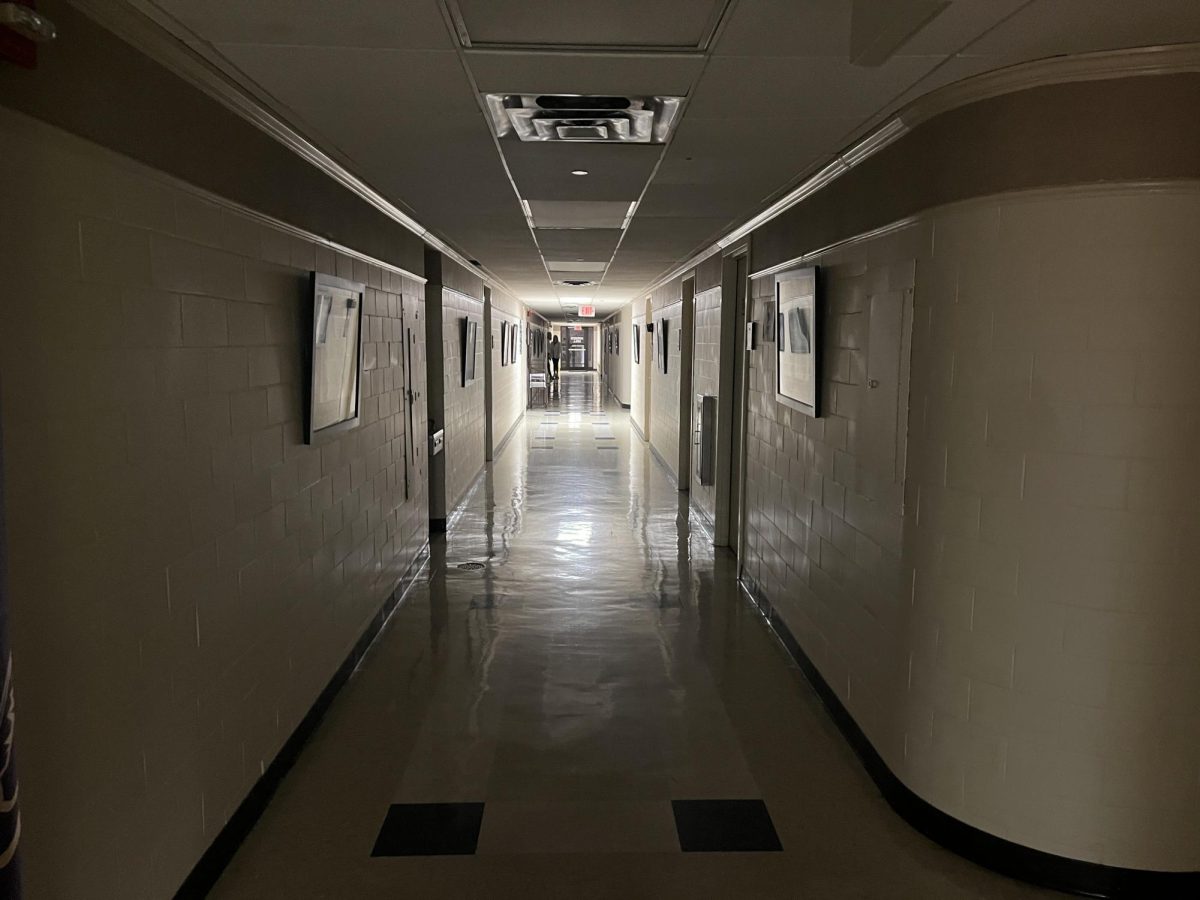LSU’s football game against Florida will be the first step in a plan to one day make the purple-and-gold masses in Tiger Stadium go green. Until this season, Tiger Stadium was the only football stadium in the Southeastern Conference not to have a gameday recycling program for its patrons. That will change Oct. 10 as recycling bins will be introduced into Death Valley for the Florida game in hopes that the estimated 150,000 visitors on campus will utilize them, said Andres Harris, University Solid Waste Recycling manager.What started as a simple poster for architecture senior Melissa Seanard has evolved into a proposal to begin the creation of a system to recycle Tiger Stadium’s trash, which totaled more than 87 tons last season, Harris said.Seanard’s proposal to create a program for recycling in Tiger Stadium began as an assignment in her senior architecture class to determine what could be done on campus to promote an international day of climate change awareness.”I talked with Andres Harris and found out that we don’t recycle inside the football stadium,” Seanard said. “This was supposed to be just a class poster … but it turned into massive project.”Seanard eventually created a 39-page proposal arguing the benefits and feasibility of recycling in Tiger Stadium. The first step in implementing the plan is putting 25 recycling bins donated by Coca-Cola to the project in the West side upper deck for testing, Harris said. Harris said some of the bins will be monitored by volunteers during the game to make sure only recyclable materials are thrown in the bin. Other bins will be left unsupervised to test whether volunteers manning the bins are necessary to keep the bins uncontaminated by non-recyclable products as the project is expanded.Once preliminary tests present enough data to create a strategic plan outlining how many volunteers will be needed, the University will begin looking for more volunteers and more sponsors to donate the bins and will be able to outline a general cost for the plan, said Todd Jeansonne, assistant director for Athletic Facilities said.Jeansonne said he is confident the University would be able to find sponsors to donate more bins. But he said volunteers will be necessary to assist in the program because the undermanned gameday facilities crew can not hire any more people because of a statewide hiring freeze, Jeansonne said.Seanard said one of the major aspects of implementing such a plan is educating patrons to properly use the bins.”The first step would be having bins inside the stadium and having promotional videos going up on the loud speakers saying, ‘We have recycling bins — please take your trash to them,'” Seanard said. The University of Mississippi has 250 recycling bins inside Vaught-Hemingway Stadium. “[The recycling program] is a very labor intensive,” said Jim Morrison, director of strategic planning and sustainability at the University of Mississippi. “So it’s very difficult — if not impossible — without all fans taking responsibility and participating in the program.”Morrison said Ole Miss has a team of 100 volunteers, which educates tailgaters before home football games about recycling programs inside and outside the stadium. “A [public address announcer] Dan Borne announcement would get people’s attention,” said Aaron Savoy, business graduate student. “But when you are drunk and worried about a football team winning, where you put your trash is the last of your concerns.”Seanard said the goals for this season are to test different approaches to introducing bins, educate fans about recycling inside the stadium and continue efforts to recycle cardboard used by vendors in the stadium.Jeansonne said since the beginning of the season, stadium cleanup crews have gathered cardboard left by vendors and recycle bins have been placed at the entrance of the stadium for fans to discard their bottles and cans before entering the stadium.He said exact measurements can’t be made, but he believes the University will at best break even financially by incorporating recycling in its stadium cleanup process, which costs the University an estimated $19,000 for labor and supplies on the stadium alone. “You have the benefit of not bringing all those tons of material to the landfill,” Harris said. “The main thing is energy saving in this industry because it’s easier to make a plastic cup out of another plastic cup than to make it from scratch. If you break even, why not recycle?”Jeansonne said he is confident recycling programs can also be introduced for the PMAC, Alex Box Stadium and Tiger Park at the beginning of next semester.”It could really help the University’s image, said Brennan Colclough, construction management sophomore. “But I doubt people would go out of their way to put something in a recycling bin … I know I wouldn’t.”—-Contact Xerxes A. Wilson at xwilson@lsureveille.com
Death Valley recycling program to begin during Florida game
September 23, 2009

Bryce Bawcom, sociology junior, ties a garbage bag while cleaning in Tiger Stadium on Sept. 20. Trash is currently sent to a landfill, but a recycling program is being implemented.




